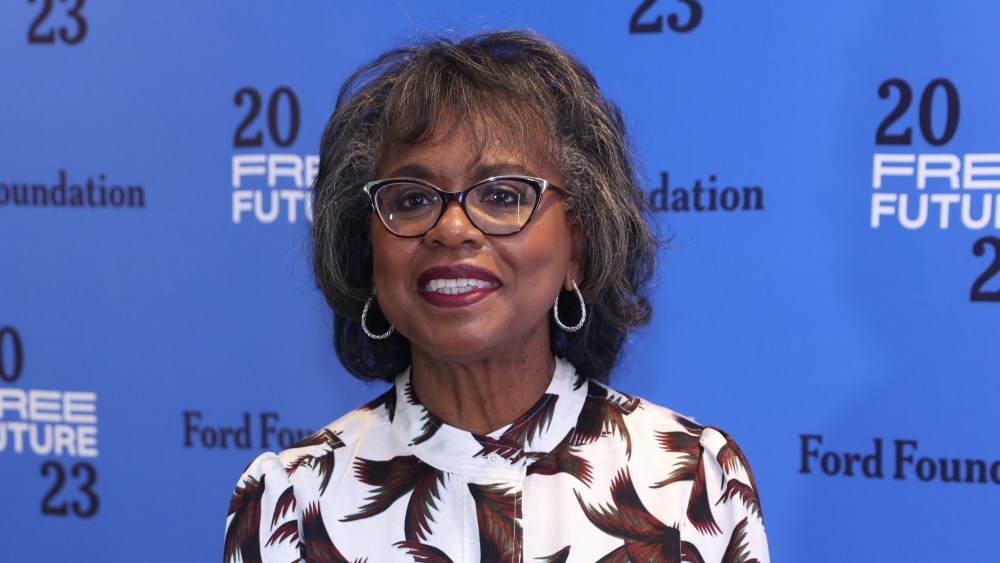Entertainment industry employees are now more aware of what defines power abuse in the workplace, but aren’t seeing substantial changes addressing misconduct, the Hollywood Commission, headed by Anita Hill, reported Thursday.
For the 2022-2023 Entertainment Industry Survey report, the Hollywood Commission surveyed over 5,000 anonymous industry workers to analyze perceptions of workplace harassment and abuse. They found that there has overall been an increase in workers’ awareness of workplace misconduct among respondents. However, workers believe there hasn’t been much positive change in alleviating misconduct and holding authority figures accountable for misconduct.
Hollywood Commission board chair and president Hill, known for accusing the U.S. Supreme Court’s Associate Justice Clarence Thomas of sexual harassment in 1991, believes that changes in mindset are a positive sign for the future. Specifically, Hill sees the results as conducive to minimizing misconduct by authority figures against employees in the workplace.
“The dramatic upswing in awareness of the types of behavior that do not belong in the workplace is a key step forward,” said Hill. “Shifts in attitudes and values of workers and leadership pave the way for institutional and systemic changes that will ultimately lead to eliminating workplace misconduct.”
The study found that 82% of workers surveyed in 2023 are aware of unacceptable behaviors in the workplace, seeing a 6% increase compared to 76% of surveyed respondents in 2020. 74% of respondents in 2023 are also aware of how to share their concerns about workplace misconduct, again a 6% increase compared to 68% of respondents in 2020.
Despite that increased awareness, the majority of workers surveyed didn’t see that translating to a positive workplace environment. Only 31% of surveyed workers believe that a powerful harasser will be held accountable for their actions towards someone of lesser authority in the workplace.
The study emphasizes that one’s demographic identity affects their perspective on the issue. White cisgender men, according to the study, generally see the entertainment industry as a welcoming environment compared to members of other groups. According to the survey, the majority of participating white cisgender men believe that the entertainment industry has made significant progress towards harassment and abuse prevention measures — an outlook that often differs from those who belong to other groups, as evidenced by the gaps in responses.
The results show that 80% of white cisgender men believe that the entertainment industry has risen leaps and bounds in preventing harassment, compared to 62% of respondents from other demographic identities. Furthermore, 57% of white cisgender men believe that the entertainment industry has advanced in facing and acknowledging the abuse of power differences compared to 40% of other respondents. Significantly, 73% of white cisgender men voted that the industry has overall developed to become a culture of respect, with 58% of other respondents voting such.
What these study results show is that although there may be some progress in workers’ awareness of power abuse, there is still work to be done regarding action and intervention taken against the manifestation of this power abuse in the workplace. Additionally, it must be noted that attitudes towards work culture in the entertainment industry are contingent upon race, sexuality, gender and multiple other factors, with white cisgender men perceiving a more positive work environment than other groups.
“Our focus is to root out the harmful conduct that workers reported in our survey by bridging gaps in existing industry systems that leave industry workplaces vulnerable to abusive and discriminatory behaviors,” Hill added. “This is why everyone at the Hollywood Commission remains so dedicated to our cause; early this new year, we will launch new programs that we believe will make an impact.”
“We are hitting the ground running and look forward to engaging our partner organizations to support safe and productive workplaces for all industry workers,” Hill concluded.





